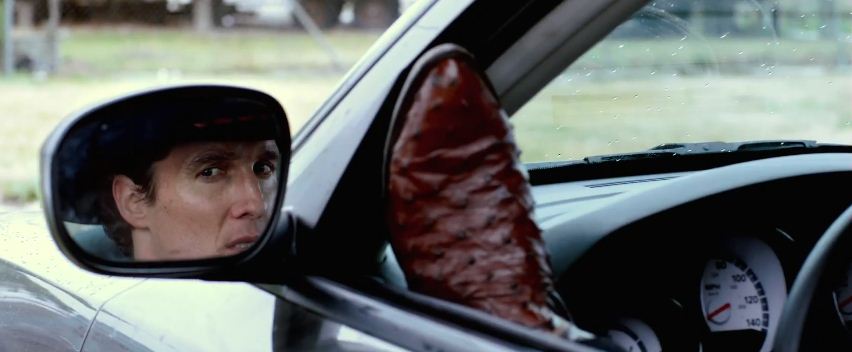
“Killer Joe.”
At age 77, director William Friedkin is still going strong forty years after The Exorcist scared the bajeezes out of everyone. His latest, Killer Joe, debuted at the 2011 Venice International Film Festival where a polarizing reception helped spread the Tracy Letts adaptation by word of mouth. That controversy seems justified, as Killer Joe is many things, but subdued is not one of them. Killer Joe sees its eponymous character (a cooky Matthew McConaughey) hired by a family of low-rent bottom feeders. Led by an underwhelming Emile Hirsch mired deep in gambling debts, the Smiths convince Joe to kill their evil mother so they can collect the insurance money. Joe agrees, on the condition that he can woo Hirsch’s sister Dottie (Juno Temple) as a virgin “retainer.”
Friedkin and Letts do away with the wholesome sweetness with a pulpy style — upbeat track cuts disorient the nastiness and an often abbreviated pacing makes for a borderline exploitative experience. McConaughey’s muted sociopathy is perfect for a Southern glimpse into all the insanity, and a climactic family dinner with some “K Fry C” is simply the demented capstone.
Were it Friedkin and Letts’ sole goal to shock, they’ve made an unqualified success. Killer Joe tries to dig up a small beating heart underneath its trashpile twist of the modern nuclear family, plumbing a desperate slice of Americana and blending unsavory morality with the grungy strip clubs and low-rent trailer parks they’re born out of. McConaughey’s wooing of a much younger Juno Temple might come off as more Lolita than Love Story anywhere else, but in a picture this bleak, it’s the twisted emotional center. Friedkin’s 1973 horror classic will likely remain his masterwork, aided from among other things, William Peter Blatty’s source material. In hindsight, Linda Blair’s “pea soup” projectile sounds more appealing than a dinner with these people.
-Available On Demand
